Organizational Map
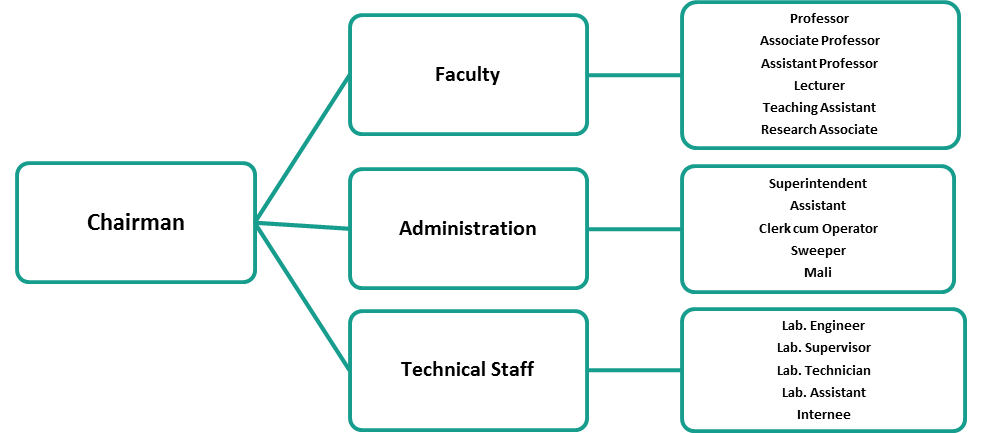
Mehran University of Engineering & Technology established a separate Software Engineering department realizing the need of this degree program for the upcoming era. Initially the department was combined with the Department of Computer Systems Engineering but at present the Department of Software Engineering has its own building which was inaugurated by Governor of Sindh Dr. Ishrat- ul-Ibad Khan on Saturday 16th April 2011. The Department of Software engineering, aims to provide high quality of education with the best current practices, theory and research which integrate professional studies in the field of software engineering.
To become the center of excellence and the aspiration in the discipline of software engineering by producing highly skilled professionals, who with their analytical capabilities and proficiencies apply the technical knowledge for socio-economic development.
To provide a technically sound ambiance of learning and realizing the frequently changing traits of the software industry to pursue sustainable socio-economic growth with the sense of ethics, professionalism and leadership to serve the community and humanity at large.
A Software Engineering Graduate
1. Performs his/her professional roles in Software industry and related fields [PLO 1, 2, 3, 4, 5]
2. Adheres to professional responsibilities in multi-cultural environment with continual improvement [PLO 6, 7, 8, 12]
3. Works effectively as a team lead or a team member in challenging ventures [PLO 9, 11]
4. Communicates technical and managerial information efficiently in oral and written forms [PLO 1, 9, 10, 12]
1. Engineering Knowledge: An ability to apply knowledge of mathematics, science, engineering fundamentals and an engineering specialization to the solution of complex engineering problems.
2. Problem Analysis: An ability to identify, formulate, research literature, and analyze complex engineering problems reaching substantiated conclusions using first principles of mathematics, natural sciences and engineering sciences.
3. Design / Development of Solutions: An ability to design solutions for complex engineering problems and design systems, components or processes that meet specified needs with appropriate consideration for public health and safety, cultural, societal, and environmental considerations.
4. Investigation: An ability to investigate complex engineering problems in a methodical way including literature survey, design and conduct of experiments, analysis and interpretation of experimental data, and synthesis of information to derive valid conclusions.
5. Modern Tool Usage: An ability to create, select and apply appropriate techniques, resources, and modern engineering and IT tools, including prediction and modeling, to complex engineering activities, with an understanding of the limitations.
6. The Engineer and Society: An ability to apply reasoning informed by contextual knowledge to assess societal, health, safety, legal and cultural issues and the consequent responsibilities relevant to professional engineering practice and solution to complex engineering problems.
7. Environment and Sustainability: An ability to understand the impact of professional engineering solutions in societal and environmental contexts and demonstrate knowledge of and need for sustainable development.
8. Ethics: Apply ethical principles and commit to professional ethics and responsibilities and norms of engineering practice.
9. Individual and Teamwork: An ability to work effectively, as an individual or in a team, on multifaceted and /or multidisciplinary settings.
10. Communication: An ability to communicate effectively, orally as well as in writing, on complex engineering activities with the engineering community and with society at large, such as being able to comprehend and write effective reports and design documentation, make effective presentations, and give and receive clear instructions.
11. Project Management: An ability to demonstrate management skills and apply engineering principles to one's own work, as a member and/or leader in a team, to manage projects in a multidisciplinary environment.
12. Lifelong Learning: An ability to recognize importance of and pursue lifelong learning in the broader context of innovation and technological developments.

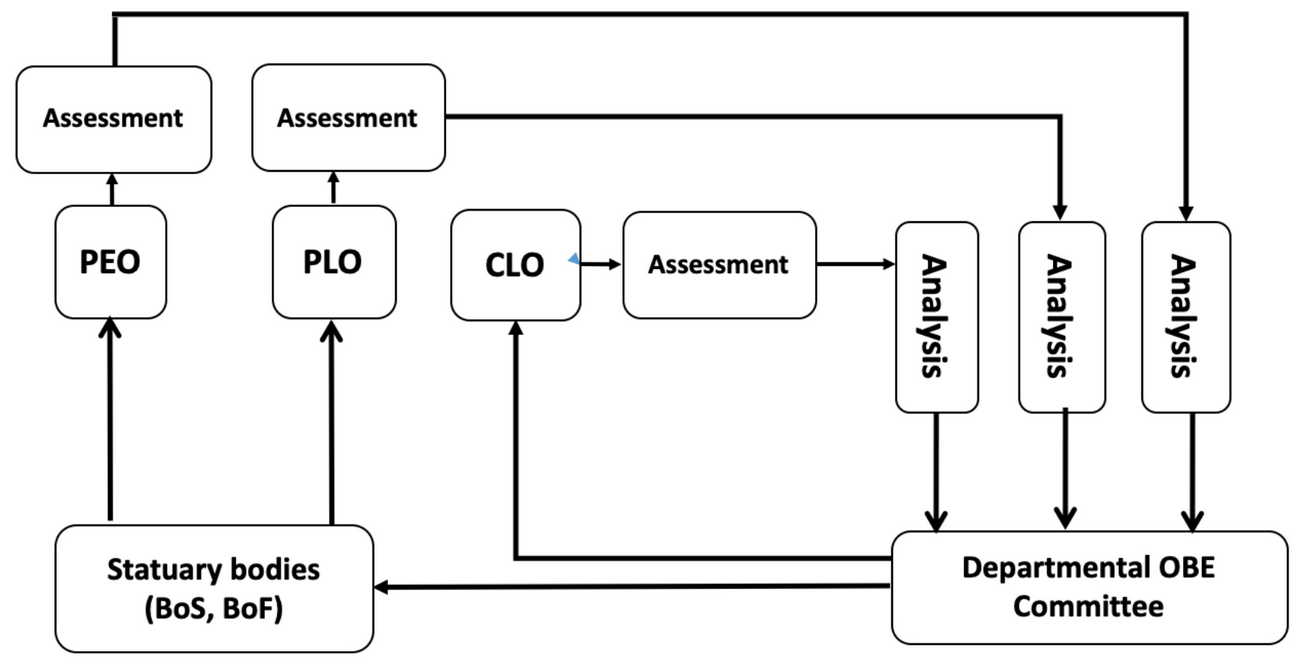
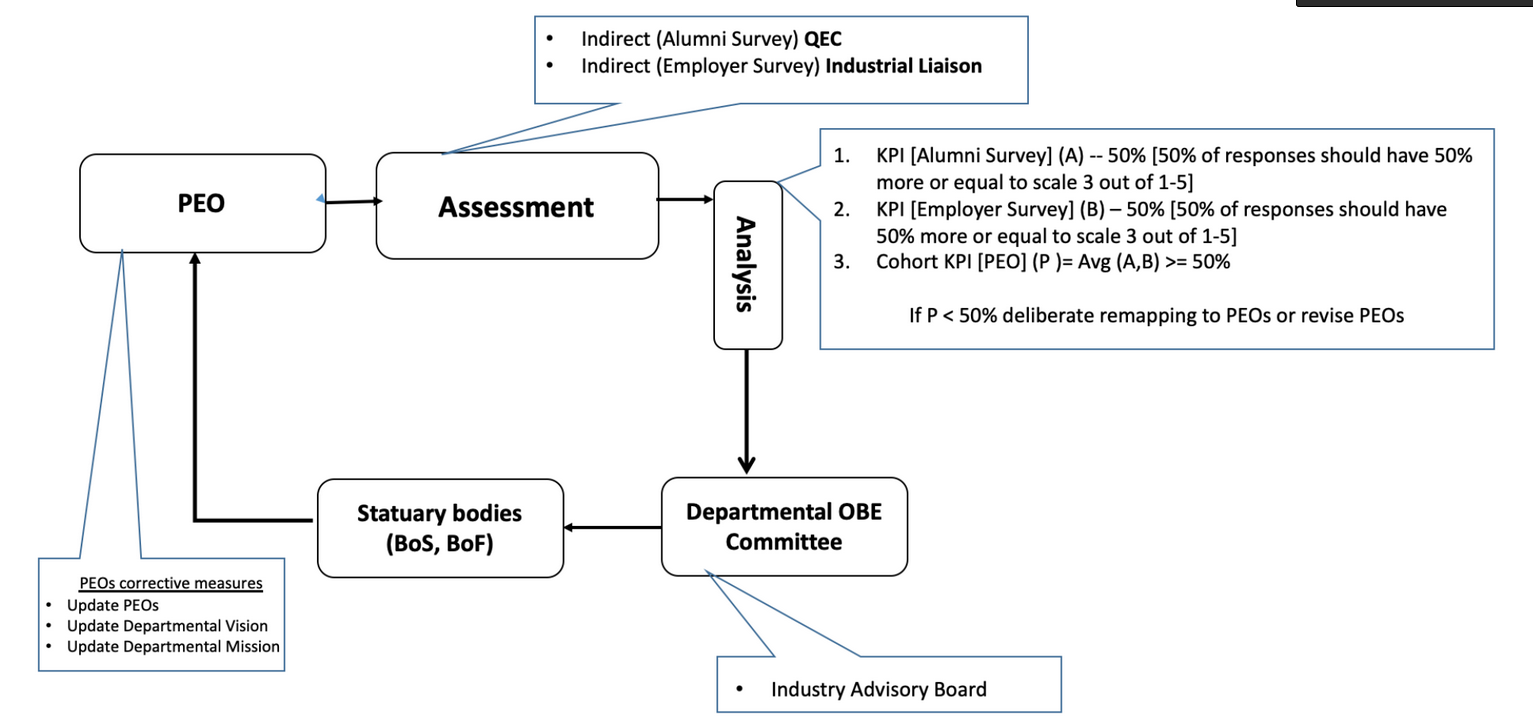
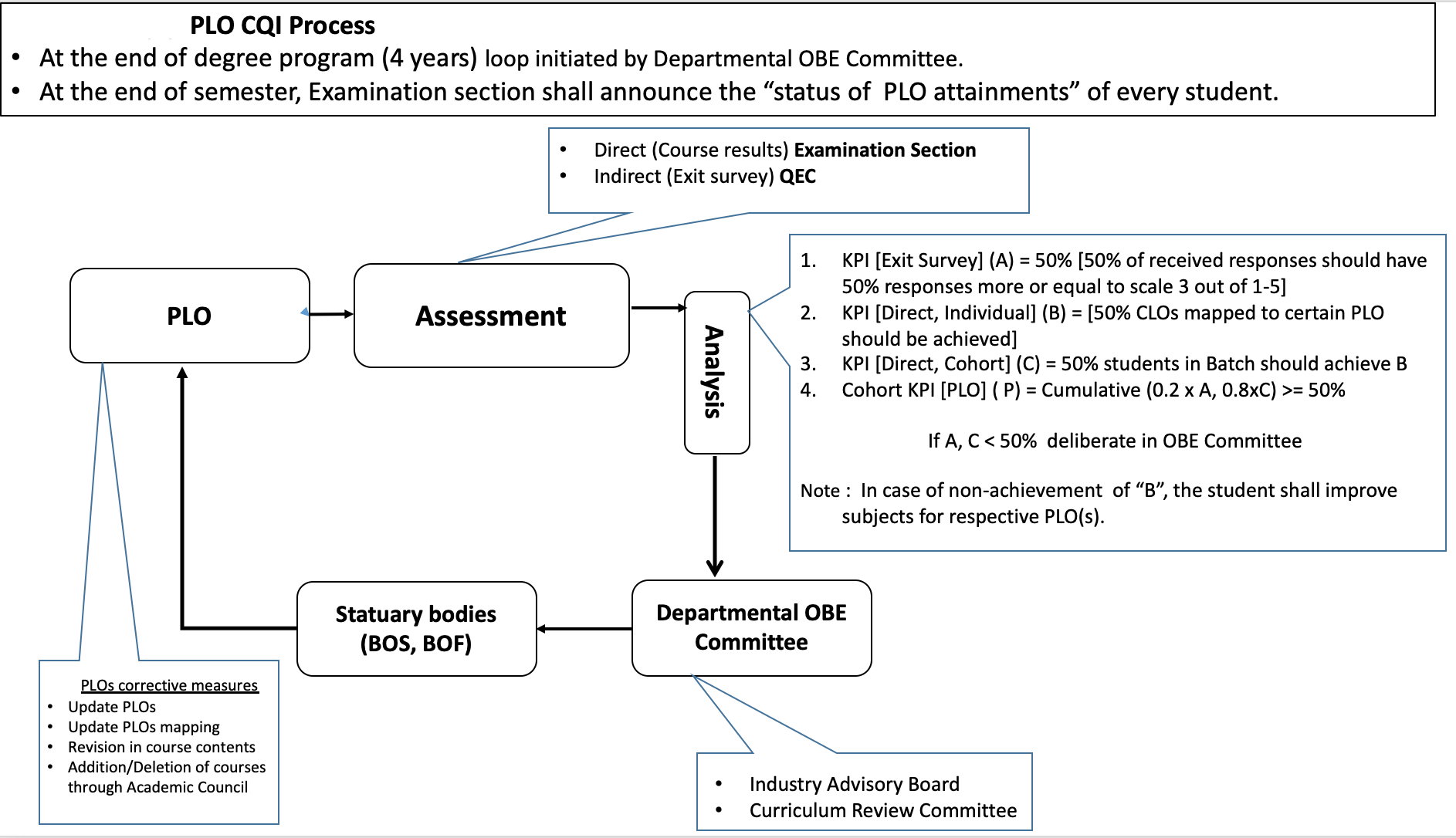
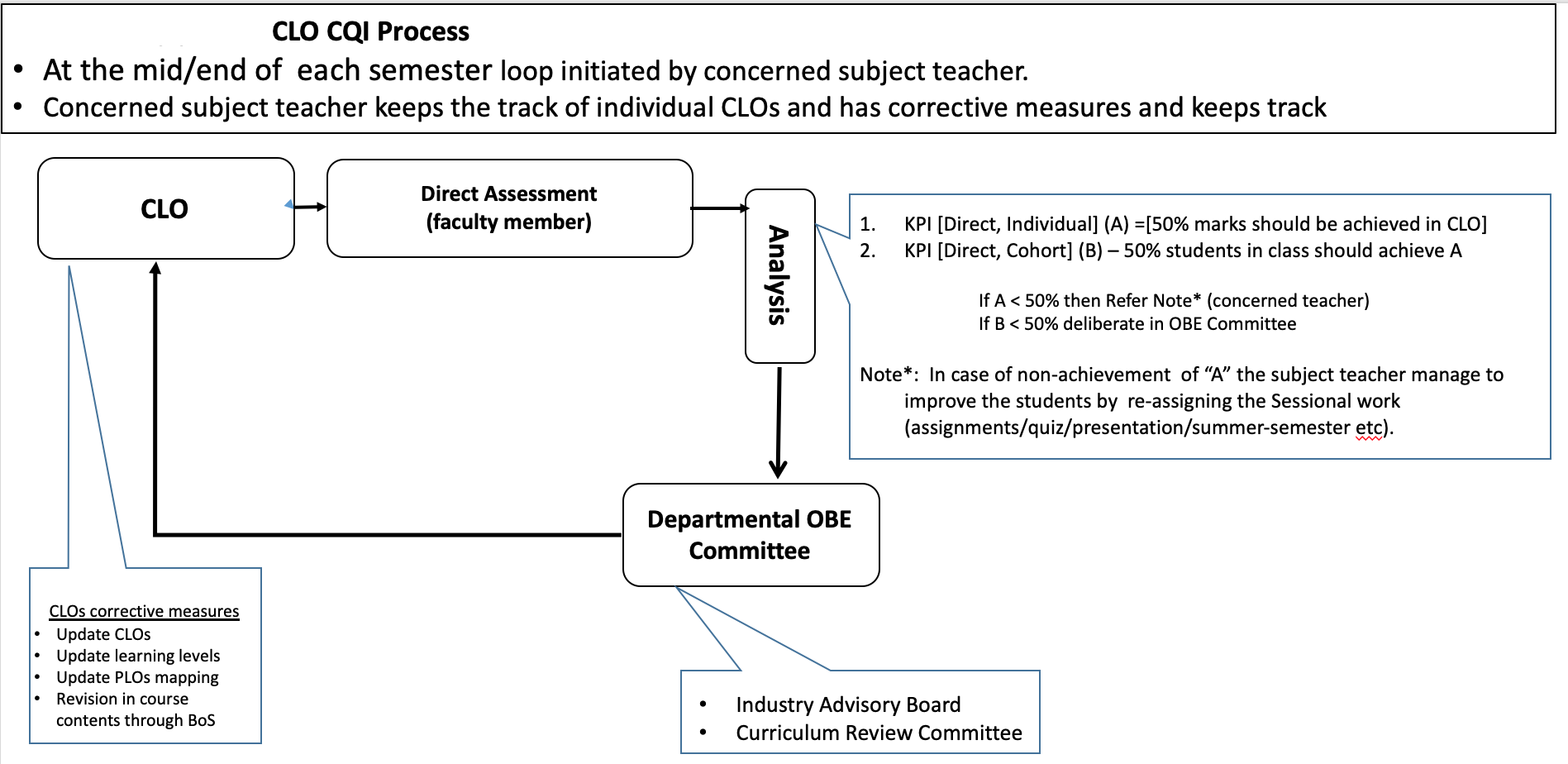
| Batch | Sections | Class Advisor |
|---|---|---|
| 20SW | 2 | Engr. Salahuddin Saddar |
| 21SW | 3 | Prof. Dr. Qasim Ali Arain |
| 22SW | 3 | Dr. Shehram Shah |
| 23SW | 3 | Engr. Mariam Memon |
| 24SW | 3 | Dr. Naeem Mahoto |
| Sr. # | Item | Score | Marks | Marks Criteria | Max Marks |
|---|---|---|---|---|---|
| 1 | No. of undergraduate Internships | 40 | 5 | 1 per internship | 5 |
| 2 | Masters Produced | 11 | 10 | 1 per student | 10 |
| 3 | PhD Produced | 0 | 0 | 5 per student | 10 |
| 4 | Program Accreditation | Level II | 15 | # 15 for level II 10 for level I |
15 |
| 5 | Seminars/Workshops/Conferences/CPD Attended | 10 | 10 | 1 per event | 10 |
| 6 | Seminars/Workshops/Conferences /Webinars conducted | 5 | 10 | 2 per event | 10 |
| 7 | HEC recognized International Journals articles Published with IF | 11 | 6.875 | 10*score/F | 10 |
| 8 | HEC recognized local articles published | 9 | 1.125 | 10*score/F | 10 |
| 9 | Alumni Network established (Members of network as % of students passed last four years) | 60 (%) | 5 | 41-50 (5) 31-40 (4) 30-21(3) 11-20 (2) 5 |
|
| 10 | Student Feedback Teacher Evaluation (cumulative average of all teachers) | 3.07 | 7 | 3.75-4.0 (10) 3.50-3.74 (9) 3.25-3.49 (8) 10 |
|
| 11 | Establishment of professional student society | 2 | 5 | 5 per group | 5 |
| 12 | Student participation in extra curriculum activities | 50 (%) | 5 | 41->50 (5) 31-40 (4) 30-21(3) 11-20 (2) 5 |
|
| 13 | Funded Research Project won from Sindh HEC/HEC/PSF or any other | 3 | 5 | Funded Research Project won from Sindh HEC/HEC/PSF | 5 |